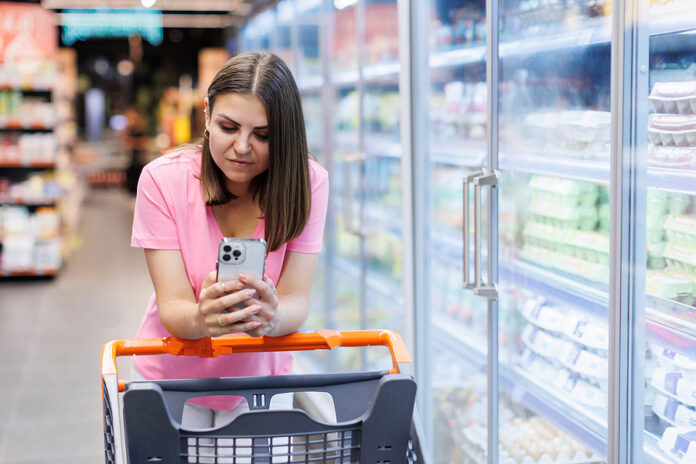
By Ben Gaskill, co-owner of Everest Ice and Water Systems
As one of the fastest-growing demographics, the Gen Z cohort is incredibly valuable to many industries as their habits shape business growth and success. This is no different in the food and beverage industry, where Gen Z represents a huge market that companies are eager to tap into. For their part, Gen Z views food and drinks not just as sustenance but as an experience that allows them to explore their identity and other cultures from around the world.
Yet to keep Gen Z on their side, F&B companies must continue meeting the demands and expectations of this diverse, tech-savvy, and socially conscious age group. How well a company can accomplish this may determine its future success and growth.
What does Gen Z want?
It’s a question that marketing teams in almost every business sector are asking themselves; how can we effectively capture Gen Z’s attention? Everyone seems to have their own idea on which Gen Z core values to focus on. For instance, diversity and social justice tend to be strong values for most Gen Z consumers.
However, as the recent fallout from Bud Light’s decision to partner with a transgender influencer shows, aligning your brand with social issues can alienate other segments of your customer base. In this day and age, it’s going to get tougher and tougher to focus on something that everyone will like. That said, the following three areas come pretty close to pleasing most people.
Sustainability
Sustainability and environmentalism are big issues in the world today, and Gen Z takes these issues more seriously than any other generation before them. According to a 2021 Pew survey, 37% of Gen Z respondents said that addressing climate change was their top personal concern. Contrast this with just 27% of Gen X and 29% of Boomers saying the same thing. What’s more, 73% of Gen Zers are willing to pay more for sustainable products.
There’s no shortage of ways an F&B company can show its commitment to sustainability. For a start, you could begin working toward making 100% of your packaging materials recyclable, reusable, or compostable. Many companies have already set this goal, and it probably won’t be long before it becomes an industry standard. Other sustainable practices include switching to renewable energy sources, producing more plant-based products, and sustainable ingredients sourcing.
It’s also worth thinking creatively when looking to reduce your brand’s environmental impact. For instance, I recently came across a vending machine that provided freshly made Vietnamese pho soup. Apart from the novelty of getting soup from a vending machine, the bowl and chopsticks that came with it were made of biodegradable bamboo. This is the kind of sustainable thinking that F&B companies need to display when marketing their products.
Convenience
Convenience is a high priority for all types of shoppers when it comes to the stores and brands they support. Yet the definition of convenience can change depending on whom you ask. For Gen Z, convenience is about having access to products they can reach by walking or through public transportation. The reasons are simple: a recent survey found that Gen Z shoppers are 20% more likely to live in an urban area and 45% less likely to own a vehicle.
Self-checkout is another important factor of convenience and Gen Z tends to favor this option more than any other demographic. This can be attributed to the fact that most Gen Z shoppers have grown up with the option to use scan-and-go technology when purchasing a product. One survey even found that 86% of Gen Z respondents were willing to choose one store over another based solely on whether it had scan-and-go shopping as an option.
Technology
Over the last few years, technology has done wonders for improving the customer experience. New features like smart screens, customizable orders, voice support capabilities, and personalized recommendations can go a long way in providing a more personalized shopping experience. Brands would do well to act now on delivering a more modern buying experience that empowers consumers through greater choice, convenience, and availability.
That said, technology is not so much a bonus for Gen Z as an expectation. They’ve grown up in a highly technological world and consider touchscreen interfaces, cashless payments, and other tech tools as the norm. As such, F&B companies should adopt the same view when improving their customer experience through technology. These tools likely won’t make a huge difference in attracting new customers but they will at least ensure you won’t lose any customers to a more technologically savvy competitor.
Final thoughts
As with previous generations, Gen Z places a lot of importance on value, choice, and quality in the brands they choose. Yet at the same time, these digital natives also want an eco-friendly shopping experience that feels both seamless and uniquely their own. They’re also well prepared to vote with their feet when these needs aren’t met, so brands should take these needs seriously and adapt their marketing accordingly.
 Ben Gaskill is the co-owner of Everest Ice and Water Systems. With over 25 years of experience in Sales, Sales Management, and Training, Ben has a successful background in high-level sales strategies, business development, and calling on C-Level through end users selling both Capital Equipment and an extensive product line.
Ben Gaskill is the co-owner of Everest Ice and Water Systems. With over 25 years of experience in Sales, Sales Management, and Training, Ben has a successful background in high-level sales strategies, business development, and calling on C-Level through end users selling both Capital Equipment and an extensive product line.






